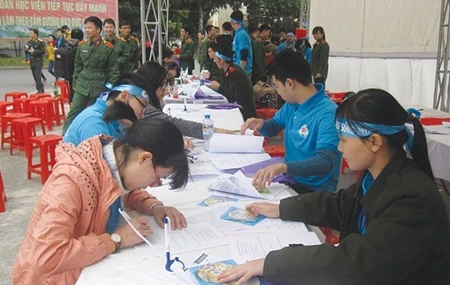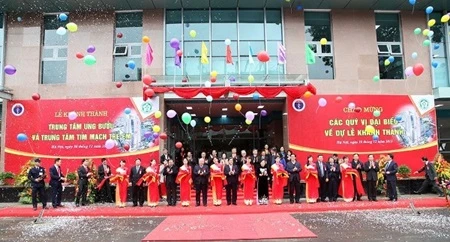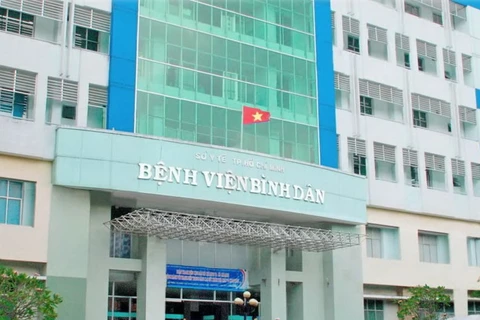HCM City (VNA) - Many patients with severe kidney disease who live in smaller cities in the south often have to travel to HCM City for medical treatment, but with another kind of dialysis method now available in Vietnam, the trip is no longer necessary.
A 68-year-old patient from Ba Ria-Vung Tau province, who has chronic kidney failure at the end stage, for example, has travelled to Binh Dan Hospital in HCM City to receive the peritoneal dialysis (PD) treatment. But it can also be done at home.
"It should be carried out for four times each day. Each time takes 30-45 minutes," said Dr Hoang Thien Phuc, deputy head of the hospital’s nephrology and hemodialysis department.
A catheter inserted into the patient's abdomen acts as an artificial kidney to filtrate and remove waste products and excess fluid from blood.
Via the catheter, one to three litres of dialysis fluid remains in the peritoneal cavity for several hours before being drained into an empty bag. A new bag of fluid is then drained into the peritoneal cavity.
Phuc said the daughter of the patient from Ba Ria-Vung Tau province was taught how to administer the treatment and what to do in case of complications.
"PD is associated with a risk of infection, which can lead to complications such as peritonitis, which requires surgery. That is dangerous for a person with chronic kidney failure," Phuc said.
However, there have been no reported cases of PD with infections in the country, he added.
A clean environment at home is needed to avoid infection, he said.
Patients with PD or their relatives who perform the procedure should be taught how to recognise infection, Phuc said.
The hospital's department, which began operating on January 11, has performed PD on five patients with chronic kidney failure.
At other hospitals such as Bach Mai Hospital in Hanoi, more than 200 patients with end-stage disease have received PD treatment.
Twenty-eight hospitals in the country perform PD, including Cho Ray and 115 People's Hospital in HCM City.
At a recent signing ceremony with the ministry and Baxter Healthcare, Tran Quy Tuong, deputy head of the Central Medical Examination and Treatment Department, urged doctors to use the PD treatment.
Using PD at provincial-level hospitals would help reduce pressure for haemodialysis and kidney transplants at major hospitals in big cities, as 80,000 patients in Vietnam have end-stage renal disease, Tuong said.
A report of the Medical Examination and Treatment Department shows that centres for haemodialysis, a treatment that clean toxins, extra salts and fluids through a dialysis machine, are overloaded with patients.
Provincial-level hospitals should send doctors to training courses on the PD technique, Tuong said.-VNA

























